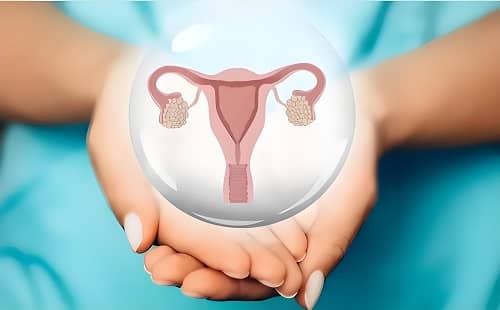Ectopic pregnancy occurs when the fertilized egg implants outside the uterus, typically in the fallopian tubes, ovaries, or abdominal cavity. While it may not be possible to completely eliminate the risk of ectopic pregnancy, it is possible to significantly reduce the risk through scientific health management and good lifestyle habits. Here are several key preventive measures:

Table of Contents
- 1. Maintain Reproductive Health
- 2. Pre-Pregnancy Preparation
- 3. Pay Attention to Early Pregnancy Symptoms
- 4. Manage Chronic Diseases
1. Maintain Reproductive Health
Maintaining the health of the reproductive system is key to preventing ectopic pregnancy. Regular gynecological check-ups can help detect and treat infections or inflammation that could lead to ectopic pregnancy, preventing damage to the fallopian tubes or uterus. Additionally, practicing good personal hygiene, using appropriate contraception methods, and minimizing the risks associated with abortion can help lower the risk of ectopic pregnancy.
- Recommendations: Regular gynecological exams, good personal hygiene, proper contraception.
- Risk Factors: Reproductive tract infections, fallopian tube damage, uterine abnormalities.
2. Pre-Pregnancy Preparation
Pre-pregnancy check-ups are critical for detecting potential health issues and taking preventive actions. If abnormal uterine shape, fallopian tube abnormalities, or hormonal imbalances are found during these check-ups, intervention and treatment under medical guidance should be carried out before pregnancy. Furthermore, adjusting diet, quitting smoking, limiting alcohol, and maintaining moderate physical activity can help improve overall health and create a solid foundation for pregnancy.
- Recommendations: Pre-pregnancy check-ups, lifestyle adjustments, improving physical fitness.
- Suitable Population: Women with pre-existing health issues or those planning pregnancy.
3. Pay Attention to Early Pregnancy Symptoms
After becoming pregnant, women should closely monitor their body for changes, especially abdominal pain and irregular bleeding. For women with a history of ectopic pregnancy or other risk factors, early ultrasound examinations should be done to confirm the location of embryo implantation. Regular prenatal check-ups are also essential for ensuring a safe pregnancy and detecting any potential risks early.
- Recommendations: Watch for early symptoms, perform early ultrasound checks.
- At-Risk Population: Women with a history of ectopic pregnancy, fallopian tube damage, or other risk factors.
4. Manage Chronic Diseases
Chronic diseases like diabetes and thyroid disorders can indirectly affect the function of the fallopian tubes, increasing the risk of ectopic pregnancy. Effective management of these chronic conditions can minimize their impact on pregnancy and reduce the likelihood of ectopic pregnancy. Patients should follow medical advice for regular treatment and health management to ensure the best possible physical condition for conception.
- Recommendations: Proper treatment and management of chronic diseases, regular health monitoring.
- Suitable Population: Women with chronic conditions, especially diabetes and thyroid disorders.
Friendly Reminder
By following the above preventive measures, women can significantly reduce the risk of ectopic pregnancy and ensure the health and safety of both mother and baby. If planning for pregnancy, it’s important to engage in pre-pregnancy check-ups and health management. Understanding your body, adjusting your lifestyle, and monitoring changes during pregnancy can help effectively reduce the likelihood of ectopic pregnancy.